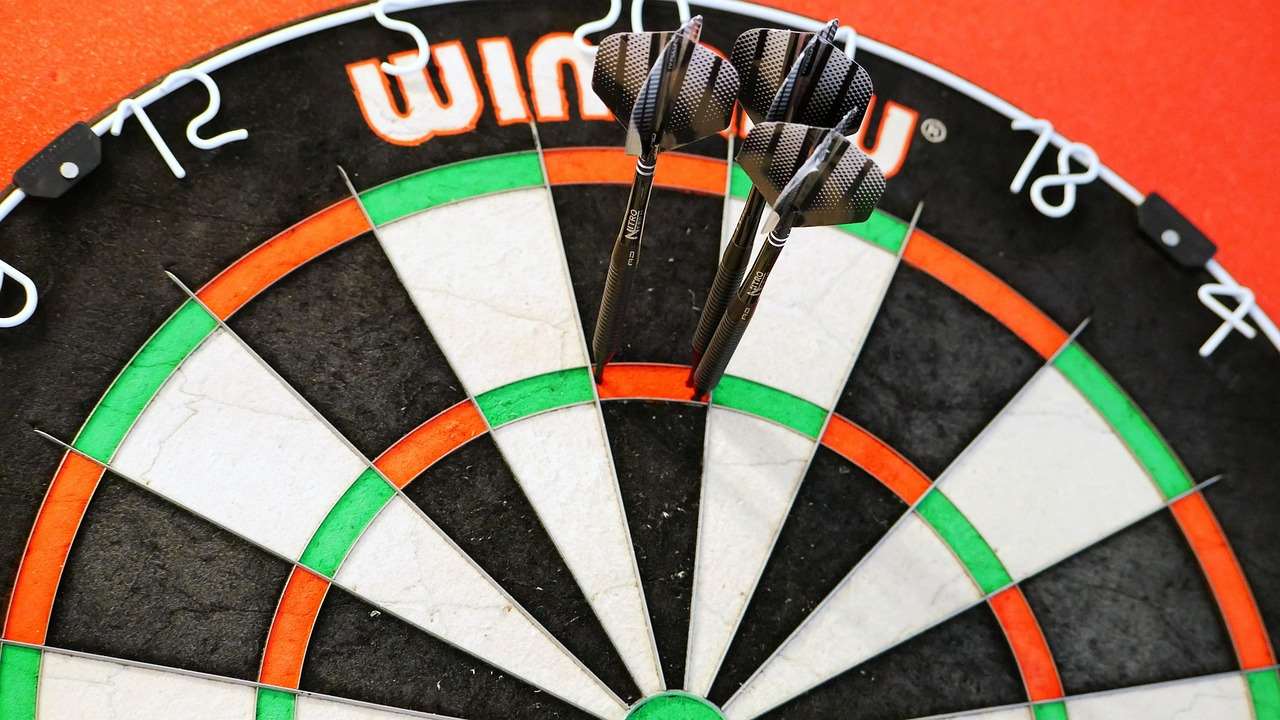Navigating the complexities of Betting Sponsorship Compliance is crucial for both betting operators and sports organizations to avoid hefty fines and reputational damage; understanding and adhering to advertising standards, responsible gambling guidelines, and specific jurisdictional regulations are key to successful partnerships. This article will delve into the essential aspects of maintaining compliance, from advertising guidelines to responsible gambling measures, and will explore the consequences of non-compliance.
⚠️ Still Using Pen & Paper (or a Chalkboard)?! ⚠️
Step into the future! The Dart Counter App handles all the scoring, suggests checkouts, and tracks your stats automatically. It's easier than you think!
Try the Smart Dart Counter App FREE!Ready for an upgrade? Click above!
Understanding the Landscape of Betting Sponsorship Compliance
The world of betting sponsorships is a lucrative one, offering significant financial benefits to sports teams, leagues, and individual athletes. However, with this financial boost comes a responsibility to adhere to strict rules and regulations, ensuring that sponsorships are conducted ethically and responsibly. Betting Sponsorship Compliance is not just about ticking boxes; it’s about protecting vulnerable individuals and maintaining the integrity of the sport. The regulatory environment is constantly evolving, demanding constant vigilance and adaptation. The impact of betting sponsorship in darts is a great example.

Failure to comply with these regulations can result in serious consequences, including substantial fines, reputational damage, and even the termination of sponsorship agreements. Therefore, a proactive approach to compliance is essential for all parties involved.
Key Regulatory Bodies and Frameworks
Several key regulatory bodies oversee betting and gambling activities around the world. Understanding their roles and responsibilities is fundamental to achieving Betting Sponsorship Compliance:
- Gambling Commissions: These organizations, such as the UK Gambling Commission, are responsible for licensing and regulating gambling operators within their respective jurisdictions. They set the standards for advertising, responsible gambling, and other operational aspects.
- Advertising Standards Authorities: These bodies, like the ASA in the UK, ensure that advertising is legal, decent, honest, and truthful. They investigate complaints about misleading or irresponsible advertising.
- Government Agencies: National and local government agencies also play a role in regulating gambling, often through legislation and enforcement.
These bodies enforce a range of regulations relating to things such as underage gambling, misleading advertisements, and the promotion of responsible gambling measures.
Essential Elements of Betting Sponsorship Compliance Programs
A robust Betting Sponsorship Compliance program is crucial for ensuring adherence to regulations and promoting responsible gambling practices. It should encompass several key elements:
Robust Due Diligence Processes
Before entering into any sponsorship agreement, both the betting operator and the sports organization should conduct thorough due diligence on each other. This includes:
- Financial Stability: Assessing the financial health and stability of the potential partner.
- Reputational Checks: Investigating any past or present legal or ethical issues involving the potential partner.
- Compliance History: Reviewing the potential partner’s track record regarding compliance with gambling regulations.
Comprehensive Advertising Guidelines
Advertising is a key component of betting sponsorships, but it must be carefully managed to comply with advertising standards. Key considerations include:
- Target Audience: Ensuring that advertising does not target underage individuals or other vulnerable groups.
- Responsible Gambling Messaging: Prominently displaying responsible gambling messages and providing information about how to seek help for gambling problems.
- Accuracy and Transparency: Avoiding misleading or exaggerated claims about the odds of winning or potential payouts.
- Placement Restrictions: Adhering to restrictions on the placement of advertisements, such as bans on advertising near schools or in areas frequented by children. You should carefully consider things like betting company logos on darts boards.
Responsible Gambling Measures
Promoting responsible gambling is a critical aspect of Betting Sponsorship Compliance. This includes:
- Age Verification: Implementing robust age verification processes to prevent underage gambling.
- Self-Exclusion Programs: Offering self-exclusion programs that allow individuals to voluntarily ban themselves from gambling.
- Deposit Limits: Providing options for setting deposit limits to control spending.
- Reality Checks: Implementing reality checks that remind players how long they have been gambling and how much they have spent.
- Training and Awareness: Providing training to staff on how to identify and assist individuals who may be experiencing gambling problems.
Monitoring and Reporting
A Betting Sponsorship Compliance program should include ongoing monitoring and reporting to ensure that regulations are being followed. This includes:
- Regular Audits: Conducting regular audits of advertising and promotional materials to ensure compliance with advertising standards.
- Incident Reporting: Establishing procedures for reporting and investigating any incidents of non-compliance.
- Data Analysis: Analyzing data to identify trends and potential risks related to responsible gambling.

Navigating Jurisdictional Variations
One of the biggest challenges in Betting Sponsorship Compliance is the wide variation in regulations across different jurisdictions. What is permissible in one country may be prohibited in another. Therefore, it is essential to have a thorough understanding of the specific regulations in each jurisdiction where a sponsorship agreement is in place.
Key Differences in Regulations
Some key differences to be aware of include:
- Advertising Restrictions: Some jurisdictions have strict restrictions on the types of advertising that are allowed, while others are more lenient.
- Responsible Gambling Requirements: The specific requirements for responsible gambling measures can vary significantly.
- Taxation: Tax laws related to gambling revenue and sponsorships can vary widely.
Strategies for Managing Jurisdictional Variations
To effectively manage these variations, consider the following strategies:
- Legal Counsel: Engage legal counsel with expertise in gambling law in each relevant jurisdiction.
- Compliance Technology: Utilize compliance technology solutions to track and manage regulatory changes.
- Customized Training: Provide customized training to staff on the specific regulations in each jurisdiction.
The Role of Technology in Enhancing Compliance
Technology plays an increasingly important role in Betting Sponsorship Compliance. Various technological solutions can help betting operators and sports organizations automate compliance processes, improve monitoring, and enhance responsible gambling measures.
Examples of Compliance Technology Solutions
Some examples of compliance technology solutions include:
- Age Verification Software: Software that verifies the age of users through identity checks.
- Advertising Monitoring Tools: Tools that automatically scan advertising content for compliance with advertising standards.
- Responsible Gambling Platforms: Platforms that provide tools for self-exclusion, deposit limits, and other responsible gambling measures.
- Data Analytics Platforms: Platforms that analyze data to identify trends and potential risks related to gambling.

Benefits of Using Technology
The benefits of using technology for Betting Sponsorship Compliance include:
- Automation: Automating compliance processes saves time and resources.
- Improved Accuracy: Technology can reduce the risk of human error.
- Enhanced Monitoring: Technology enables more comprehensive monitoring of compliance.
- Data-Driven Insights: Technology provides data-driven insights that can inform compliance strategies.
Consider, also, betting sponsorship media coverage and how that fits into compliance efforts.
Consequences of Non-Compliance
Failing to adhere to Betting Sponsorship Compliance regulations can result in severe consequences for both betting operators and sports organizations. These consequences can include:
Financial Penalties
Regulatory bodies can impose hefty fines for non-compliance, which can significantly impact a company’s bottom line.
Reputational Damage
Non-compliance can damage a company’s reputation, leading to a loss of customers and partners. This can be particularly damaging in the highly competitive gambling industry.
Legal Action
In some cases, non-compliance can lead to legal action, including lawsuits and criminal charges.
Termination of Sponsorship Agreements
Sports organizations may terminate sponsorship agreements with betting operators who are found to be in non-compliance. This can result in a significant loss of revenue for the sports organization.

Best Practices for Maintaining Betting Sponsorship Compliance
To maintain Betting Sponsorship Compliance, both betting operators and sports organizations should adopt the following best practices:
Establish a Clear Compliance Framework
Develop a comprehensive compliance framework that outlines the policies, procedures, and controls necessary to ensure adherence to regulations. This framework should be regularly reviewed and updated to reflect changes in the regulatory environment. The framework should incorporate insights from guides like Darts Betting And Fantasy Leagues Guide.
Provide Regular Training
Provide regular training to staff on Betting Sponsorship Compliance regulations and best practices. This training should be tailored to the specific roles and responsibilities of each employee.
Conduct Regular Audits
Conduct regular audits to assess the effectiveness of the compliance program and identify any areas for improvement. These audits should be conducted by independent auditors with expertise in gambling law and regulations.
Stay Informed About Regulatory Changes
Stay informed about changes in the regulatory environment and proactively adapt compliance programs to reflect these changes. This can be achieved by subscribing to industry publications, attending industry conferences, and engaging with legal counsel.
Foster a Culture of Compliance
Foster a culture of compliance throughout the organization, where employees are encouraged to report any potential violations of regulations. This can be achieved by establishing a confidential reporting mechanism and providing assurances that employees will not be penalized for reporting concerns.

The Future of Betting Sponsorship Compliance
The landscape of Betting Sponsorship Compliance is constantly evolving, driven by technological advancements, changing societal attitudes, and increasing regulatory scrutiny. In the future, we can expect to see:
- Increased Use of Technology: Technology will play an even greater role in automating compliance processes, improving monitoring, and enhancing responsible gambling measures.
- Greater Emphasis on Data Analytics: Data analytics will be used to identify trends and potential risks related to gambling, enabling more targeted and effective compliance efforts.
- More Stringent Regulations: Regulatory bodies are likely to continue to increase their scrutiny of betting sponsorships and implement more stringent regulations to protect consumers and maintain the integrity of sport.
Ultimately, Betting Sponsorship Compliance isn’t just about avoiding penalties; it’s about protecting consumers, ensuring fair play, and fostering a sustainable gambling industry.
Conclusion
Betting Sponsorship Compliance is a multifaceted and essential aspect of modern sports and gambling industries. By implementing robust due diligence, adhering to advertising standards, prioritizing responsible gambling, and continuously monitoring for compliance, stakeholders can ensure mutually beneficial and ethically sound partnerships. Proactive measures are far more effective than reactive solutions when addressing the complexities of this regulated environment. Remember, staying informed, seeking expert advice, and fostering a culture of compliance are vital for long-term success and sustainability in the dynamic world of betting sponsorships. Now is the time to audit your current practices and seek guidance to ensure that you are fully compliant.
Hi, I’m Dieter, and I created Dartcounter (Dartcounterapp.com). My motivation wasn’t being a darts expert – quite the opposite! When I first started playing, I loved the game but found keeping accurate scores and tracking stats difficult and distracting.
I figured I couldn’t be the only one struggling with this. So, I decided to build a solution: an easy-to-use application that everyone, no matter their experience level, could use to manage scoring effortlessly.
My goal for Dartcounter was simple: let the app handle the numbers – the scoring, the averages, the stats, even checkout suggestions – so players could focus purely on their throw and enjoying the game. It began as a way to solve my own beginner’s problem, and I’m thrilled it has grown into a helpful tool for the wider darts community.